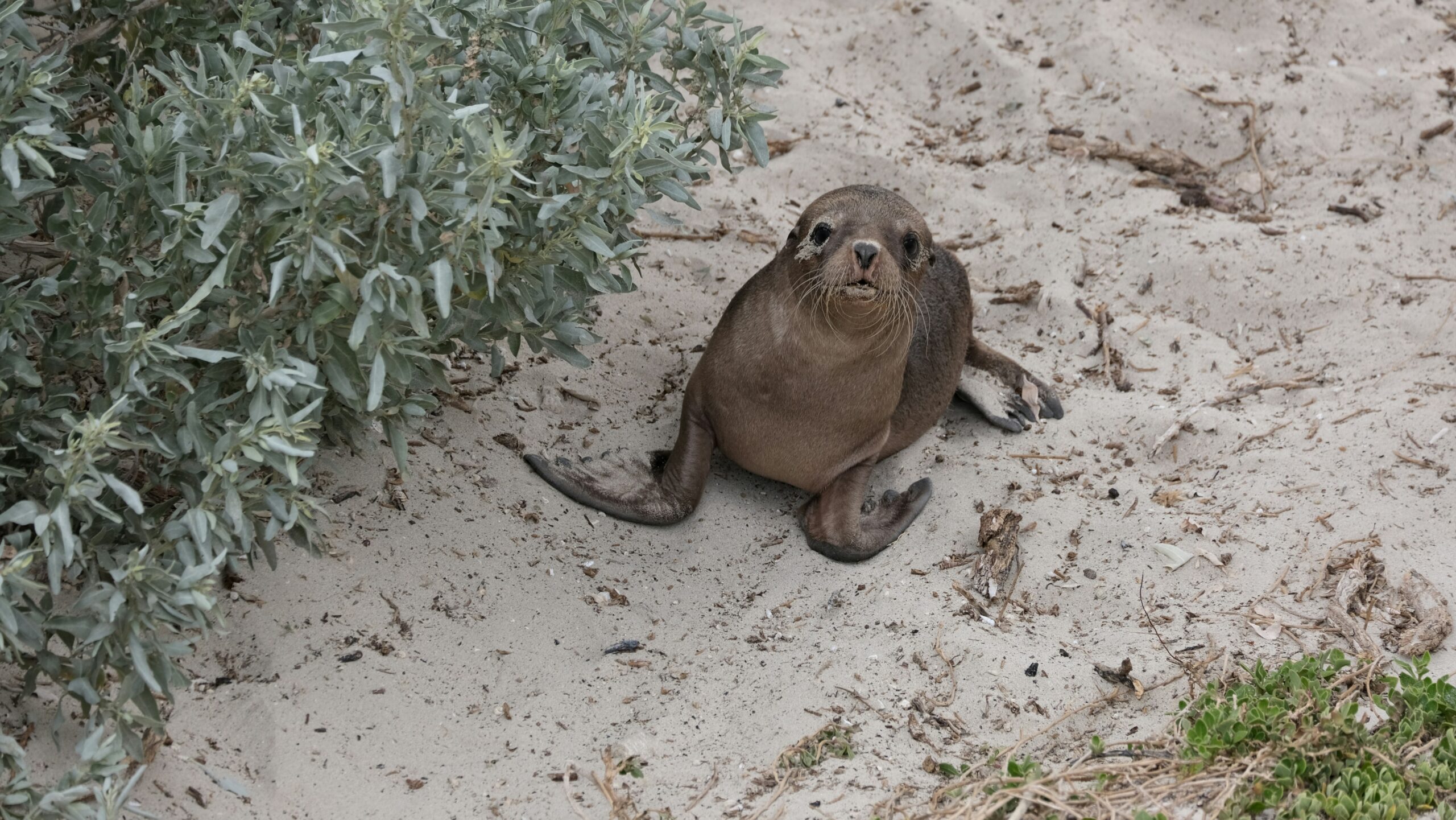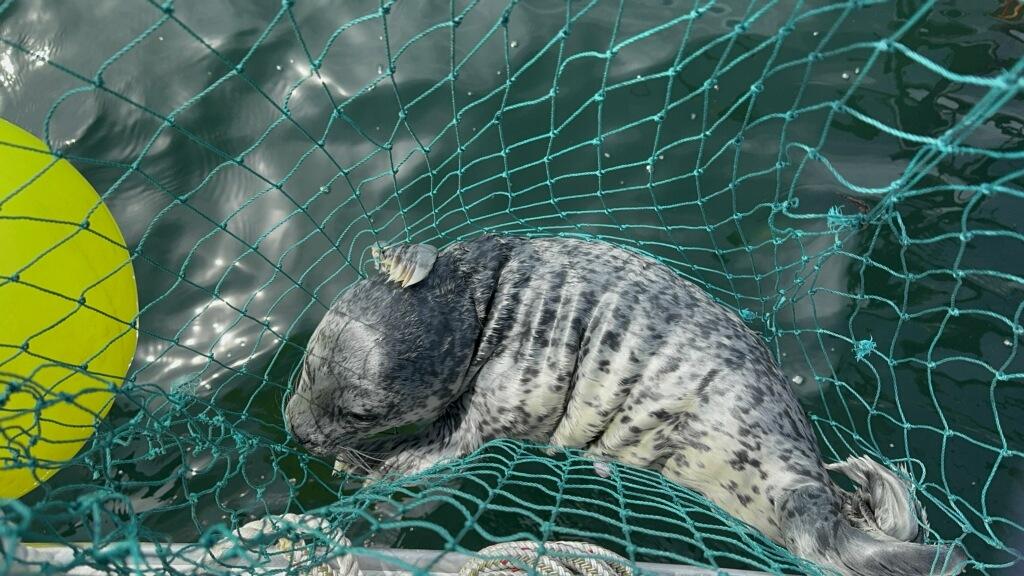
Why you should never touch a seal pup on the beach: Tips from Orca Network’s marine mammal experts
As summer heats up in the Pacific Northwest, so does the likelihood of spotting one of the most adorable coastal sights—harbor seal pups basking on sandy shores or tucked into rocky coves. With their big, dark eyes and fuzzy faces, it’s tempting to get close or try to help, especially if the pup appears to be alone. But according to Orca Network’s Central Puget Sound Marine Mammal Stranding Network (CPSMMSN) and NOAA Fisheries, the most important thing you can do is nothing at all.
Harbor Seal Pups Are Not Abandoned—They’re Waiting for Mom
From June through August, harbor seals give birth in the Salish Sea. While it may appear that a pup is stranded or abandoned, chances are good that its mother is nearby, watching and waiting for the beach to clear before she returns to feed her young. Human presence—especially hovering, approaching, or touching—can scare the mother away permanently, which could be fatal for the pup.
“Human intervention is the reason they don’t come back,” says Garry Heinrich, Response Coordinator for CPSMMSN. “If the mother sees people near where she left her pup, she’ll stay away.”
What You Should (and Shouldn’t) Do If You See a Seal Pup
- Stay back at least 100 yards: Give the animal plenty of space and keep noise levels down.
- Keep dogs leashed: Even a curious or friendly dog can stress or harm a vulnerable pup.
- Don’t assume the pup needs rescuing: Most pups are healthy and simply resting or waiting.
- Don’t touch or try to feed the pup: This can transmit disease, create dependency, or result in injury.
- Call the experts if you’re concerned: If you suspect the pup is injured or entangled, contact the local stranding network (numbers listed below).
“People often think a pup has been abandoned when it hasn’t been,” adds Orca Network Executive Director Susan Berta. “That is why people need to leave them alone, so mom will come back.”
Risks to People and Pets
It’s not just seal pups who are at risk—disturbing marine mammals can put people in danger, too. Just this month, CPSMMSN responded to a July 4th incident where a mother seal bit a kayaker who attempted to disentangle her pup from netting. Seal mothers are fiercely protective, and other large marine mammals like elephant seals can become aggressive when approached.
“These beaches are nurseries,” says Berta. “We need to give these animals space not just for their safety, but for ours, too.”
When to Call for Help
If you observe a marine mammal that appears to be injured, entangled, or dead, it’s important to report it rather than intervene:
- Central Puget Sound, Island, or Skagit Counties: Call CPSMMSN at (949) 233-2822 or 1-866-ORCANET and select the STRANDING option.
- Other parts of Washington/Salish Sea: Contact NOAA Fisheries Marine Mammal Hotline at 1-866-767-6114.

Harbor seals, elephant seals, and all other marine mammals are protected under the federal Marine Mammal Protection Act. Disturbing or approaching them too closely is not only dangerous—it’s also illegal.
Learn More:
- Visit the Orca Network Stranding Network page
- Stop by the Langley Whale Center, 105 Anthes Ave, Langley, WA — open Wed–Sun, 11 a.m. to 5 p.m.
- Read NOAA’s “Share the Shore with Harbor Seal Pups” fact sheet
Let’s all do our part to share the shore responsibly—and give these young seals their best chance at survival in the wild.






